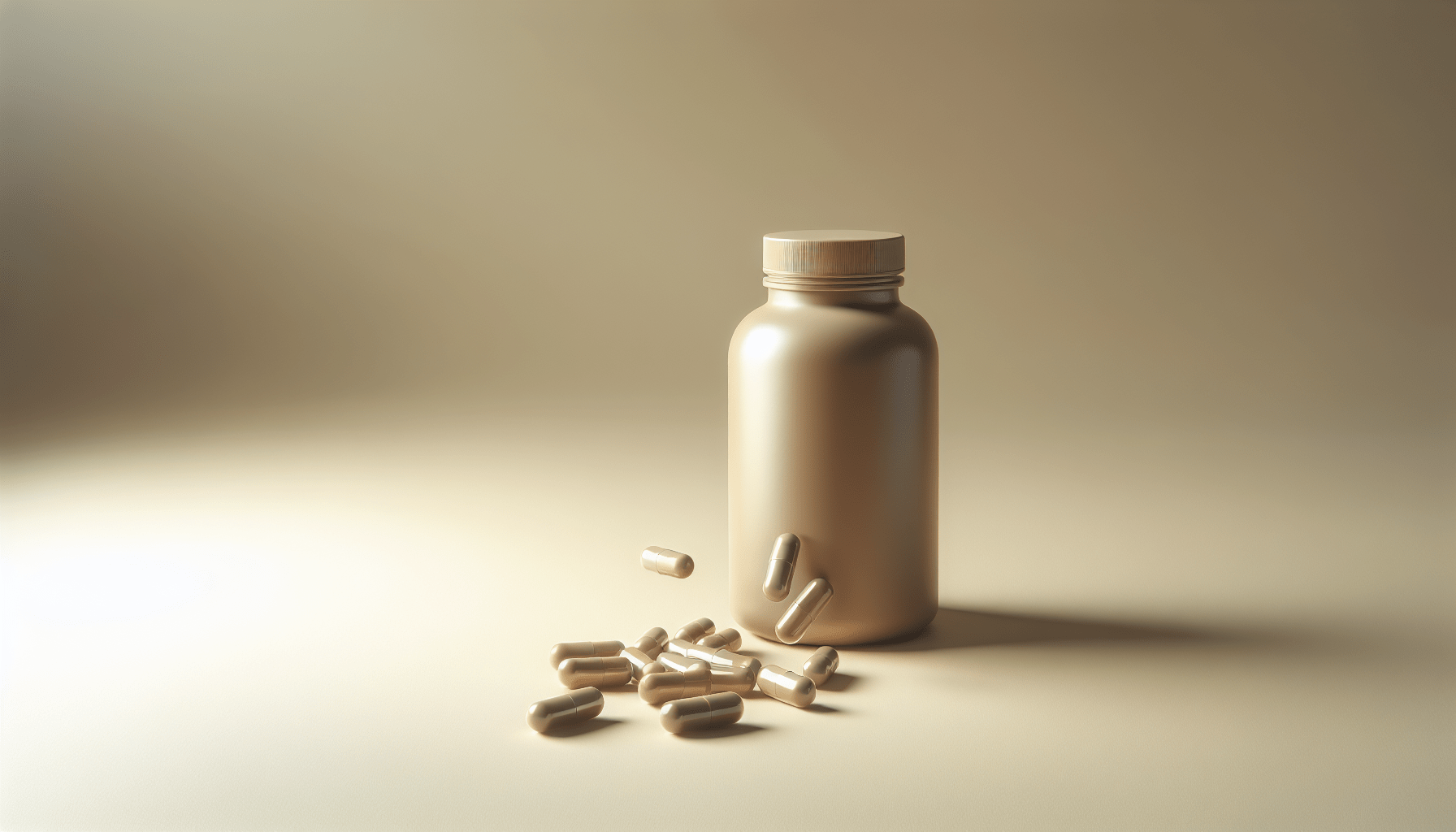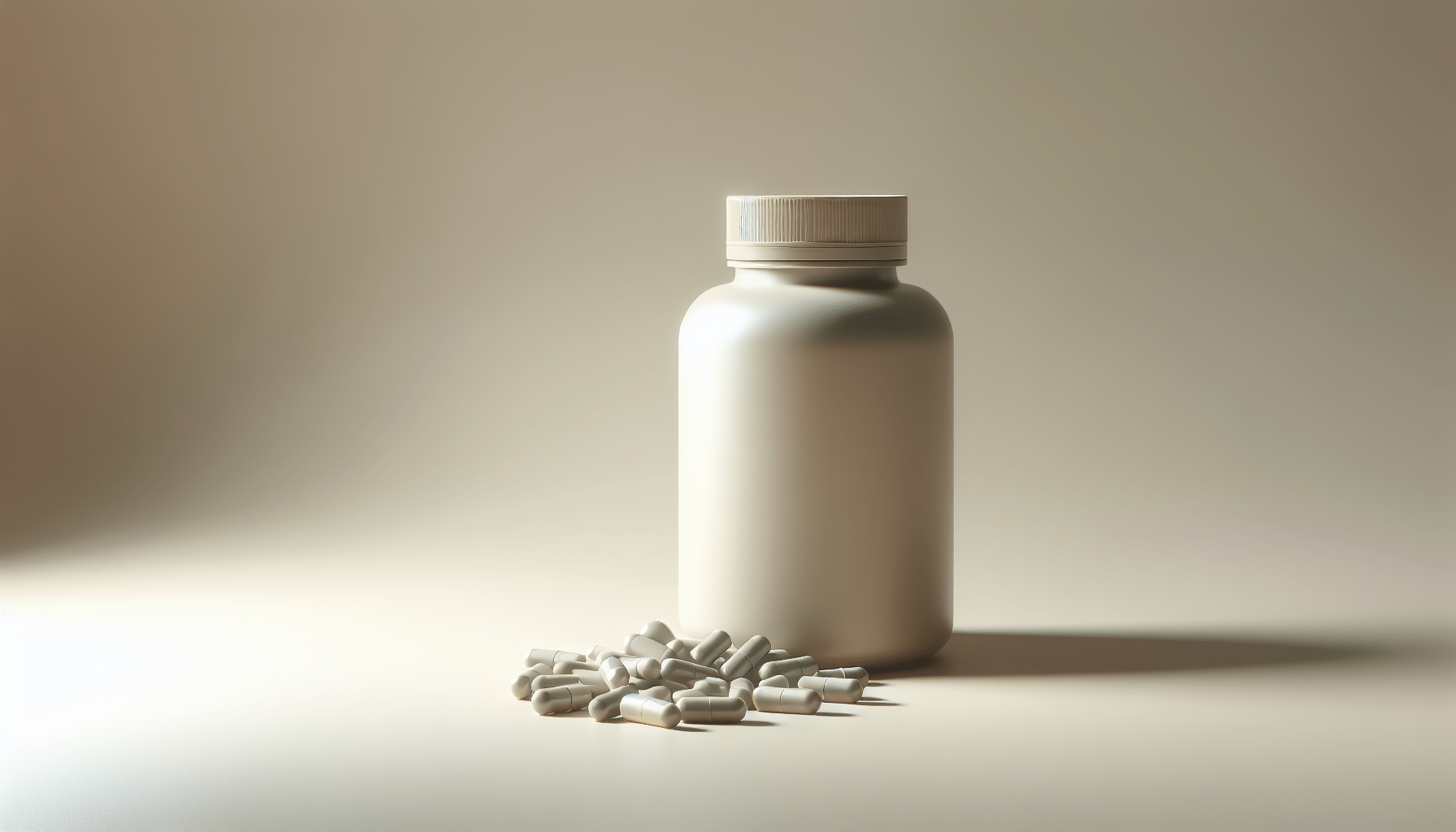Have you ever wondered how you can better manage urine leakage as you age? Understanding and addressing this issue can feel overwhelming, but with the right knowledge and tools, you can regain control and improve your quality of life. Let’s explore some of the best supplements for managing bladder control and reducing incontinence in a friendly and approachable manner.
Understanding Urine Leakage
Table of Contents
Urine leakage, or incontinence, is a common concern as we grow older. Whether it’s a few drops during a sneeze or a more constant dribble, it can be disruptive and embarrassing. But it’s important to remember that this is a common issue, and there are ways to manage and treat it effectively.
Types of Urine Leakage
Different types of urine leakage each require unique management strategies. Understanding which type you’re experiencing can help in choosing the best approach:
- Stress Incontinence: This occurs when there’s pressure on your bladder, such as during coughing, sneezing, or lifting heavy objects.
- Urge Incontinence: You feel a sudden, intense urge to urinate immediately followed by involuntary leakage.
- Overflow Incontinence: This happens when the bladder doesn’t empty completely, leading to dribbling.
- Functional Incontinence: Physical or mental impairments prevent timely urination.
Causes of Urine Leakage in Older Adults
Several factors may contribute to incontinence as you age, including weakened bladder muscles, hormonal changes, and certain medical conditions such as diabetes. Understanding these factors can guide your approach to managing the condition.
Restoring Normal Bladder Control
Taking steps to restore normal bladder control involves a combination of lifestyle changes, exercises, and, importantly, the right supplements. Let’s break down these strategies to make them easier to implement.
Lifestyle Modifications
A few adjustments can make a significant difference:
- Hydration Control: Drink enough to stay hydrated without overloading the bladder.
- Diet Adjustments: Reduce caffeine, alcohol, and spicy foods, as they might irritate your bladder.
- Regular Bathroom Schedule: Try to empty your bladder every 2-4 hours during the day.
Pelvic Floor Exercises
Strengthening the pelvic floor muscles can significantly improve bladder control. Kegel exercises are particularly effective. Here’s how to do them:
- Identify the right muscles by trying to stop urination mid-flow.
- Once identified, contract these muscles for 3-5 seconds.
- Relax for the same period and repeat 10-15 times, three times a day.
Practicing these exercises regularly can lead to noticeable improvements over time.

Best Supplements for Bladder Control
Natural supplements can support bladder health and help manage incontinence by targeting various underlying causes. Here’s a detailed look at some of the best options:
Pumpkin Seed Extract
Pumpkin seed extract is rich in essential fatty acids and has anti-inflammatory properties that promote bladder health. It’s believed to support muscle function in the urinary tract and can help reduce the symptoms of incontinence.
- Dosage: 1-2 grams per day
- Benefits: Improved bladder strength and reduced inflammation
Saw Palmetto
Originally known for supporting prostate health, saw palmetto has also shown promise in improving urinary tract function. It can help reduce symptoms of an overactive bladder and improve overall comfort.
- Dosage: 160 mg twice a day
- Benefits: Decreased urinary urgency and frequency
Horsetail Extract
Horsetail is a plant known for its diuretic properties. It can aid in flushing out excess fluids and toxins, which may help in stabilizing bladder function.
- Dosage: 300 mg per day
- Benefits: Reduced bladder irritation and better urine flow
Magnesium
Magnesium plays a role in muscle and nerve function, which includes those in the bladder. A magnesium deficiency can lead to muscle spasms and urge incontinence.
- Dosage: 400-500 mg per day
- Benefits: Reduced muscle spasms and improved bladder function
Vitamin D
Adequate levels of Vitamin D are essential for muscle function and may help in reducing pelvic floor disorders. Studies suggest that increased Vitamin D intake can be beneficial for bladder health.
- Dosage: 600-800 IU per day
- Benefits: Enhanced muscle strength and better bladder control
L-Arginine
L-Arginine is an amino acid that helps in the production of nitric oxide, which relaxes muscles, including those in the urinary tract. This can improve your bladder’s ability to hold urine.
- Dosage: 1 gram per day
- Benefits: Improved muscle relaxation and reduced urinary frequency
Caprylic Acid
Derived from coconut oil, caprylic acid has antifungal properties that can help maintain a healthy urinary tract by preventing infections that can exacerbate leakage.
- Dosage: 600 mg per day
- Benefits: Support for urinary tract health and reduced risk of infections
Phytoestrogens
For women, particularly those post-menopause, phytoestrogens can be beneficial. They help mimic natural estrogen, which can improve urinary tract health and reduce symptoms of stress incontinence.
- Dosage: 20-50 mg per day
- Benefits: Reduced symptoms of incontinence and improved urinary tract function
Implementation and Maintenance
Taking supplements is part of a comprehensive approach to managing bladder health. Here’s how you can incorporate them effectively into your routine:
Creating a Supplement Schedule
Maintaining consistency is crucial. Try to take your supplements around the same time every day. Here’s a sample schedule:
| Time | Supplement | Dosage |
|---|---|---|
| Morning | Saw Palmetto | 160 mg |
| Mid-Morning | Magnesium | 250 mg |
| Noon | Pumpkin Seed Extract | 1 gram |
| Afternoon | Horsetail Extract | 300 mg |
| Evening | L-Arginine | 1 gram |
| Bedtime | Vitamin D, Caprylic Acid | 600 IU, 600 mg |
Monitoring Progress
Track your symptoms and any changes in your bladder control. This can help you and your healthcare provider adjust your regimen for optimal results.
Discuss with a Healthcare Professional
Before starting any new supplement, it’s important to discuss it with your healthcare provider. They can help ensure the supplements won’t interact with any medications you’re taking and are appropriate for your health condition.
Complementing with a Healthy Lifestyle
Supplements work best when combined with a healthy diet, regular exercise, and adequate hydration. Avoiding irritants like caffeine and alcohol can further enhance the benefits.

Psychological and Social Aspects
Managing urine leakage isn’t just a physical challenge; it also has psychological and social implications. Here’s how to navigate these aspects.
Coping with Emotional Impact
Incontinence can lead to feelings of embarrassment and anxiety. It’s important to address these feelings head-on:
- Open Communication: Talk to trusted friends, family, or a counselor about your experiences.
- Mindfulness and Relaxation: Engage in activities that reduce stress, such as yoga or meditation.
Maintaining Social Activities
Avoiding social activities can lead to isolation. Here’s how to stay active and engaged:
- Plan Ahead: Identify the locations of restrooms in places you plan to visit.
- Discreet Products: Use products like discreet pads or absorbent underwear to manage leaks confidently.
Seeking Support
Joining a support group for individuals managing similar issues can provide comfort and practical advice. Sharing experiences and solutions can make the journey less daunting.
Tailoring Supplements to Individual Needs
Everyone is unique, and the effectiveness of supplements can vary from person to person. Tailoring your approach can optimize results.
Assessing Personal Health Conditions
Conditions such as diabetes, multiple sclerosis, or prostate issues can affect incontinence management strategies. Tailor your supplement intake to these conditions for better outcomes.
Combination of Supplements
Sometimes, a combination of supplements may offer better results than a single one. For example, combining magnesium and L-Arginine can enhance muscle relaxation significantly.
Adjusting Dosages
Starting with lower dosages and gradually increasing can help your body adjust and minimize any potential side effects.
Conclusion
Urine leakage can be a distressing symptom, especially as you age, but with the right approach, you can manage it effectively. A combination of lifestyle changes, pelvic floor exercises, and beneficial supplements can significantly improve bladder control and enhance your quality of life. By understanding your unique needs and working closely with your healthcare provider, you can create a comprehensive plan that brings comfort and confidence back into your daily activities. Remember, you’re not alone in this journey; support is available, and with the right strategies, you can regain control.





